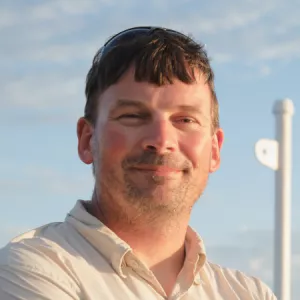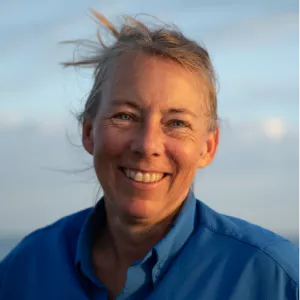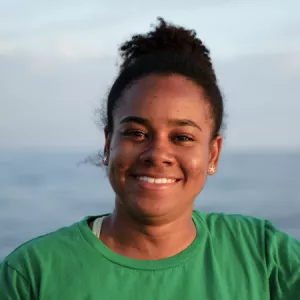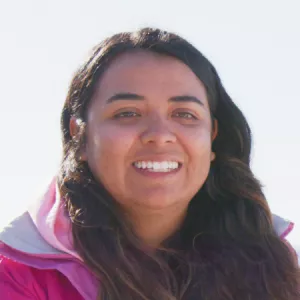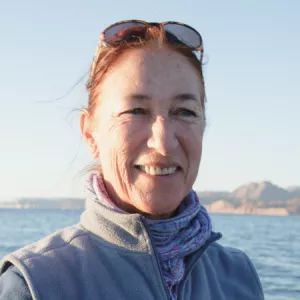
Dr. Diane Gendron Marine Biologist
Dr. Diane Gendron studies cetacean ecology at the Centro Interdisciplinario de Ciencias Marinas (CICIMAR), the Instituto Politecnico Nacional in Mexico. During 30 continuous years of research in the Gulf of California Diane has meticulously built the world’s most comprehensive, individual-specific blue whale database, identifying over 700 blue whales. Her database is of such a depth and duration that Diane has observed individuals that were born in the Gulf 25 years ago and now return to have calves of their own.
Inspired by scientists researching elephants and chimpanzee’s, Diane built on her identification work to continuously following individual blue whales, observing the behavior and interactions of known animals over extensive periods of time; this was the first time this ‘focal follow’ technique was applied to blue whales and has revealed a new dimension in the social and reproductive knowledge of the species, as well as their role in the ecosystem. Diane also focuses on interactions between blue whales and the local whale watching boats, which has led to a new method known as “passive whale watching”, where captains approach the whales using a low disturbance technique pioneered by Diane. This new passive method has been a hugely beneficial for both the whales and the whale watching community and holds the promise of sustainable long-term conservation of blue whales and the whale watching activity within Loreto Bay National Park, fulfilling a fundamental goal of Dr. Gendron's research.
During her three decades of research in Mexico Diane has mentored over 50 postgraduate students.









